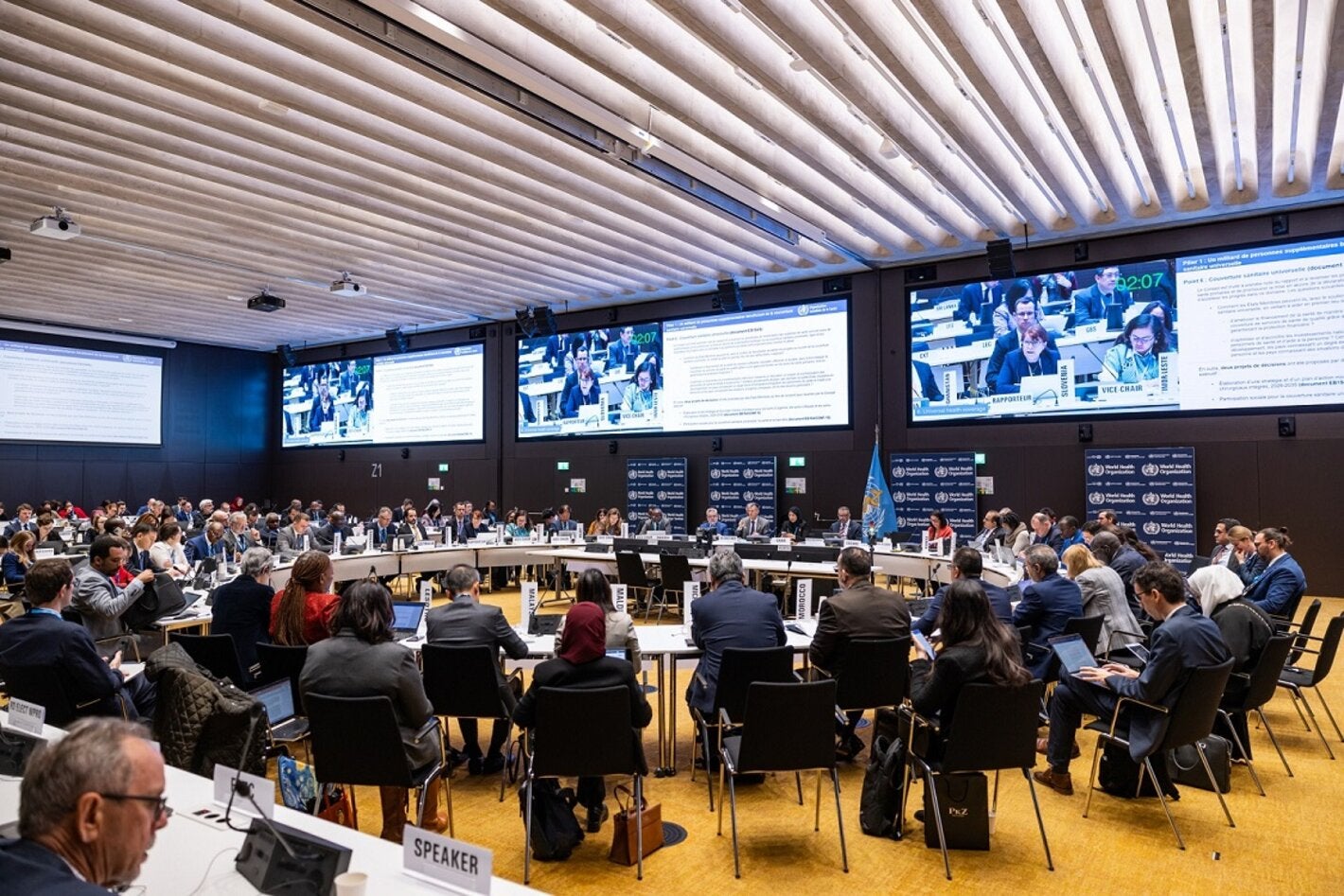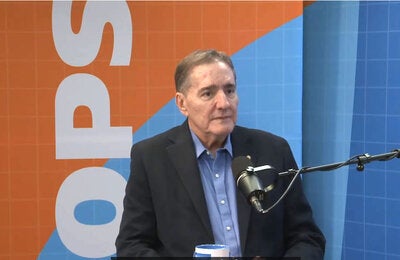
Geneva, Switzerland, 27 January 2024 (PAHO) – Accelerating action to tackle the escalating threat posed by antimicrobial resistance (AMR) and ensuring that health equity is taken into consideration in national climate change adaptation and mitigation efforts were among the top issues discussed at the World Health Organization’s 154th Executive Board this week in Geneva, Switzerland.
In the region, we “recognize that the escalating threat posed by AMR demands our unwavering attention and concerted efforts,” PAHO Director Dr. Jarbas Barbosa said in a session on accelerating national and global responses to AMR.
While 83% of countries of the Americas have a multi-sectoral antimicrobial resistance national action plan, “only 46% of these are being implemented effectively,” he added.
Countries must therefore work in collaboration with each other and with United Nations agencies and civil society organizations to “tackle this issue both at the regional and global level.”
During a session on climate change and health, the PAHO Director highlighted the particular vulnerability of the Americas to climate-related effects and disasters. “Populations in situations of vulnerability, future generations and those living in susceptible territories such as Small Island Developing States or the Amazon rainforest – those least responsible for climate change – bear the brunt of its impacts,” he said.
Dr. Barbosa underscored that while there have been advances towards tackling the health impact of climate change in the Region, including a collaboration with the European Union and the Green Climate Fund to help Member States ensure climate-resilient health care systems, “progress has been unequal.”
It is therefore crucial that health sectors “integrate equity considerations into adaptation and mitigation efforts, thus contributing to a more just, sustainable and healthy future for all.”
During the Executive Board, which took place from 22-27 January in Geneva, Member States also discussed progress and challenges towards achieving immunization targets, as well as improving preparedness and response to health emergencies and disasters.
Dr. Barbosa held several bilateral meetings with representatives from countries of Latin America and the Caribbean to discuss priority issues, including health emergencies, the importance of addressing non-communicable diseases and mental health, and dengue outbreaks, among other important topics.
Dr. Barbosa also met with the International Hospital Federation (IHR) to discuss the collaboration to strengthen hospital management in Latin America and the Caribbean.
During meetings with the Group of Member States of the Americas (GRUA) on 22-23 January, countries discussed priority issues, including the 14th General Program of Work (2025-2028), the need to ensure equitable distribution of funds among WHO regions, and health emergencies, among others.
The WHO Executive Board is composed of 34 technically qualified members elected for three-year terms. The main functions of the Board are to implement the decisions and policies of the Health Assembly, and to advise and facilitate its work. The current Board comprises six Member States from the Americas: Barbados, Brazil, Canada, Paraguay, Peru and the United States.



